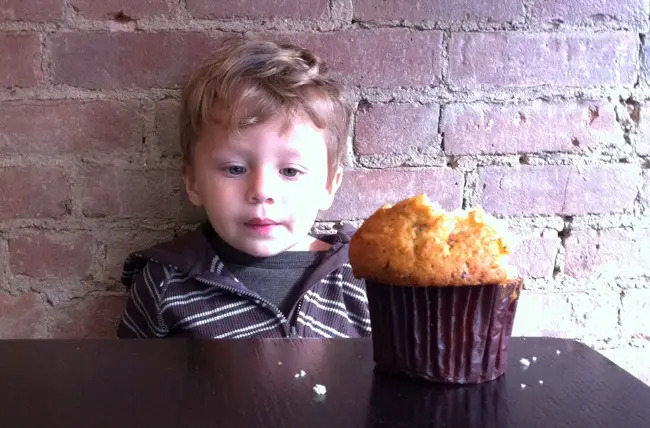What’s the most annoying thing your teenager does? Is it that he’s constantly sleeping in and on the verge of being late for school? Maybe it’s that her hygiene habits, or lack thereof, force you to ask probing questions like, “When was the last time you took a shower?” Maybe it’s the fact that when phrases like “healthy habits,” “personal responsibility,” or “We need to talk,” come out of your mouth, the teenager in the room immediately responds by rolling his eyes or vanishing. If you’re currently the parent of a teenager, it’s probably all these things and more.
Aside from loading up the car and booking an extended, adults-only getaway until she reaches “I should’ve listened to my parents” age, what can you do to help your teenager reach responsible adulthood without losing your mind?
To tackle this big question, family therapists, psychologists, and doctors share easy-to-follow tips. But first, what exactly are these bad habits teens should nix asap? Ana Jovanovic, M.S., a psychologist and life coach from Parenting Pod, an online resource for parents on mental health and well-being, says they include:
- Personal hygiene: Not showering often enough, not using deodorant, not flossing or brushing teeth, and not wearing clean clothes
- Bedtime and morning routines: Staying up too late or sleeping in, which often leads to being late for school
- Electronics: Spending too much time playing video games or scrolling through social media
- Homework: Not tracking and forgetting assignments, poor time management, turning in assignments late, and procrastination
- Fitness: Spending too much time on the couch or sitting.
- Diet: Avoiding healthy foods, eating unhealthy snacks, eating lots of sugar, eating late, and skipping breakfast
How These Habits Get Formed
“Bad habits are very rewarding,” Jovanovic says. “The rewards, satisfaction, and pleasure that bad habits provide are usually much more tangible and closer in time than the negative consequences. Impulse control, an area of executive functioning, is all about [foregoing] those short-term rewards for the sake of achieving a larger, more valuable reward that comes later on. But impulse control is not a skill that comes naturally.”
It will take some time for tweens and teens to understand the consequences that ultimately come from giving in to those impulses, Jovanovic says. But for now, playing video games or scrolling through Instagram beats the danger of not getting into the dream college because of a low GPA and eating a double cheeseburger and drinking soda sounds far more tempting than eating a salad.
Help Your Teen Form Good Habits
If your teen sees no strong reason to stop his bad habits and get on the right track, he will continue with the same old ones. “The way these habits get broken down depends on what the habit is like, and what kind of satisfaction it brings to a person. However, the challenge is not only to let go of bad habits, but to build new ones that a teen can really stick to,” Jovanovic says.
For example, what might a dermatologist say about your teenager’s skincare routine? Perhaps a lot.
Although an estimated 80 percent of teens deal with acne, 90 percent have not seen a dermatologist, according to Yoram Harth, M.D., F.A.A.D., board-certified dermatologist and medical director of MDacne, an app that uses selfies to connect patients with customized acne treatments.
“As a dermatologist, I believe that one of the worst habits teens have is picking on their acne,” Dr. Harth says. “Unfortunately picking on acne can leave lifelong scars that are very difficult to eliminate. Many parents think acne will go away by itself with age, but it won’t. The average time for acne to heal by itself is eight years.”
You could try to convince your teen not to pick at her skin by virtue of the fact that picking is bad for it, but that’s pretty hard to do since, in theory, she’s already well-aware. “The second, easier way is to help them treat and prevent their acne,” Dr. Harth recommends. “A lot can be done with small changes in behavior. If someone is dealing with acne breakouts on their forehead, they should avoid headbands, baseball caps, and hair gels. If the acne is on their body, they should avoid backpacks and too-tight clothing—and always wash their face after sweating, and shower at least once a day.”
What doesn’t work?
Lecturing (for its own sake): “Teens are opinionated young people who are likely to stick to their own way of seeing things, even if they calmly nod when you’re telling them what they should or shouldn’t do,” Jovanovic says. “Chances are, they feel that you are too old, lame, or naive to really understand what they’re going through.”
Impulsive reactions and a lack of reasoning behind your “grounding” system: “Though sometimes taking their phone away or having them go to their room may encourage them to actually do their homework or get to bed earlier, in most cases, teens will continue doing the same things, just to prove that your punishment doesn’t make sense.” When grounding your teen, figure out a system that is clear and makes her aware of the consequences—and then stick to it.
Comparing yourself to them: “Teen years are the years of questioning authorities,” Jovanovic reminds us. “This is a period when it’s psychologically desirable to be rebellious, as teens are starting to uncover who they want to be.” So, when you compare your habits to theirs, you’re implying your way is ‘the right way.’ “One of my clients phrased it nicely: ‘My mom thinks she is living vicariously through me. I am my own person, which is why I intend to do most things differently,’” Jovanovic adds.
What does work?
Listen, understand, discuss, and walk the walk: Do all of these combined; one without the other is likely to be ineffective. “What I often hear from my teen clients is, ‘Parents are willing to listen only if you are saying what they want to hear,’” Jovanovic says. “And in the end, if you’re not doing what you preach, your teen is going to see right through you. My teen clients tell me, ‘My parents are on the phone all the time but call me addicted.’ Likewise, if you preach the importance of eating healthy or exercising, you have to lead by example.”
Parents, quite often, can completely miss their own contributions to a bad family trait, notes Jennifer Johnston-Jones, Ph.D., a family therapist based in Los Angeles, CA. “For example, one of the most common bad habits for teens is negative self-talk, yet how many parents have looked in the mirror and said something negative about their bodies in front of their child?…That’s why the personal growth of parents is the best way to teach good habits in our children,” she says.
To that end, “model the good habit in yourself and let your teen know you are also working on it,” Dr. Johnston-Jones advises. If your teen is working on improving her sleep habits, help her by keeping a steady bedtime yourself, away from your phone. And most importantly, replace bad habits with healthy family habits. For Dr. Johnston-Jones, regular family meetings are a big part of the puzzle. Share the importance of creating a solution everyone can agree on. Try it for a week. If it needs revisiting, put it on the agenda again and come back to it. End the family meeting by talking about future plans or playing a game together, like charades, even if it’s just for 15 minutes, she suggests.
Reach an agreement and stick to it: “There may be things you are not willing to let slide. Whatever that is—their GPA, exercise, sleeping habits, or personal hygiene—it’s important to let them know” Jovanovic says. “Set up clear, unambiguous expectations. Let them know whether they can use your support or if they have any resources available.” When both sides come to an agreement about what should happen, your teenager will have a stronger grasp of trust and accountability.
Emphasize freedom of choice and leave them to it: “What I do in coaching is ensure that a teen I work with is familiar with all the choices they can make in a given situation, as well as the benefits and negative consequences. I help them weigh the options and once they make a decision to take ownership of it,” Jovanovic says. “What I see parents do with the intention to prevent bad things from happening is either making the choice for kids or trying to eliminate the consequence. It’s very important that they have the consequence and the opportunity to deal with it. This is a necessary learning experience that builds resilience and problem-solving and coping skills.”
Give useful feedback: “By ‘useful,’ I mean concrete, focused on behavior, and timely,” Jovanovic says. Instead of telling your teen to practice better hygiene, tell her to shower every evening and brush her teeth twice a day.
Start small and offer praise: In reality, no matter how old you are, “changing a habit is a difficult task, and getting started on a change is usually the hardest step,” Jovanovic says. Start small and leave room to grow. If he hasn’t exercised in a while, don’t sign him up for an intensive three-week program. Start with a daily 30-minute walk around the neighborhood and join him if he’s up for it.
“Parents tend to compare their own habits to the habits of their children,” Jovanovic notes. “Put the frustration on hold and focus on helping their behavior translate into a stable habit. Applaud their efforts and help them build up to new goals.”
Build your relationship: Lastly, and most importantly, this is the key to shaping your teenagers into the adults you’d like them to be. “This is the factor that makes all the difference,” Jovanovic says. “If the relationship isn’t good, chances are that your teen will ignore you, or do the opposite of what you suggest. What a coach (that’s you) does is invest time in listening and understanding the reasons behind the choices teens make, and showing interest in what they like doing. Consistency in the coach’s actions and attitude is what builds trust.”
Once your teen trusts you and feels like you really know her, she’ll be ready to listen and take what you’re saying into consideration, Jovanovic says. Your teen will also feel less pressure and lack of judgment, which will help him grow and find out what really works for him.





















